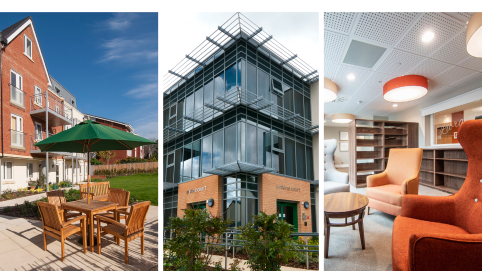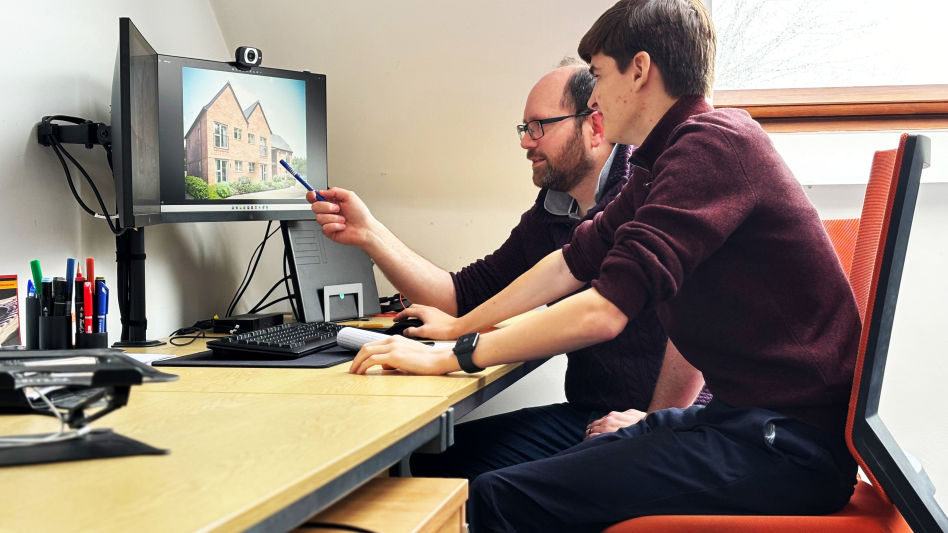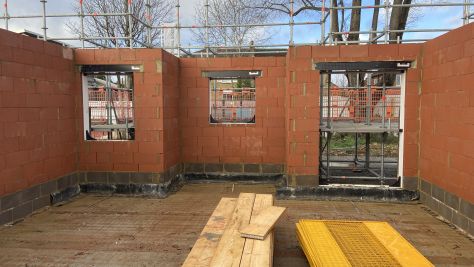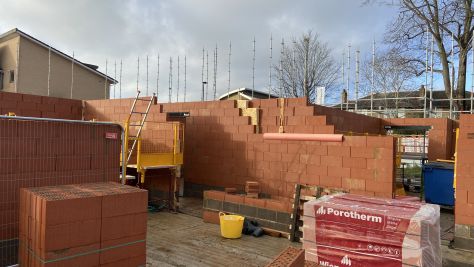



People are at the centre of everything we do, we foster and nurture a creative and innovative environment in which all excel.
Experience KSA

What do you enjoy about studying architecture?
I have learned so much. Every project is completely different.
This year of work experience forms part of my overall qualification to become an architect.
So, within the organisation I am guided by a mentor. Mine is Daniel, who has plenty of good advice and experience I can call on.
Daniel lets me talk about experiences and projects, providing a depth of understanding that I know will further my knowledge in the field and that will help me move through my career.
Throughout my year in professional practice, I must complete quarterly records. This captures the work I have been undertaking, the skills and knowledge I have obtained and goals for future
William is on a career path to be an architect and currently working with us.
His route into architecture started early, playing with Lego.
He has already completed a first-class Bachelor of Arts degree in Architecture at the renowned University of Portsmouth School of Architecture, and is now learning through his RIBA Part I year out work placement, which is part of his structured career plan.
It is clear that William, through his study and work in the profession he has become even more appreciative of what he can achieve as an architect.
I have learned so much.
I really enjoyed life at university. I made friends and Portsmouth itself is a great city to be in.
Through the course, I have grown to appreciate how architecture is very personal.
At the start of any project, I find myself thinking about what a client, and those who would interact with our designs, would want, seeing it through their eyes; what do they need to make them feel comfortable is the ultimate aim.
Every project is completely different. How do I help turn the occupants needs into a practical building.
A challenge!
But when you do get it right, the feeling is just a sense of pride in creating a space that other people can enjoy.
After working for 12 months, I will have two options. I can either go back into university, and obtain my master’s degree with a further 2 years of full-time study. Or I can take the new path, a Degree Apprenticeship route, currently being undertaken by a fellow co-working in the Practice.
The Degree Apprenticeship route provides for on the job training 4 days in the field and 1 day at university. This alternative route is 4 years long and fully approved by the professional bodies, RIBA and ARB.
I haven’t made my mind up yet. KSA and Daniel have been amazing.
I am involved in all aspects of the practices. I really couldn’t ask for anything more. I have seen work from various sides. Creativity is clearly a strong element of an architect’s job, but I am enjoying learning about planning, feasibility, engineering, sustainability and graphics too. There are many dimensions to architecture and it’s all so different.
I have received plenty of encouragement.
I see the work of the whole practice.
I have some time before I need to decide which route to take, and I can see that a master’s degree has its own merits. The working world experience too has a lot to offer, and you get a lot of practical advice too.
Either way, I know that as an architect I am investing in the community, and I can literally affect the lives of others and make spaces that are comfortable and enjoyable places to live or work.
The team of KSA wish William every success.